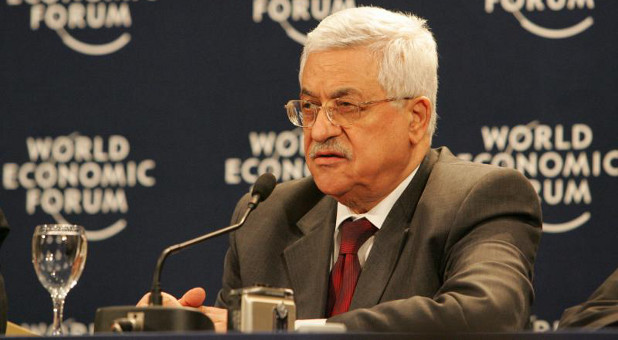“We will never recognize Israel as a Jewish state,” Palestinian Authority President Mahmoud Abbas declared at a recent Arab League foreign ministers meeting in Cairo, Egypt.
This declaration, like others made by Arab and Palestinian leaders, was intended not only to undermine Israel’s historical right to and international legitimacy as a Jewish state, but also to signal that the Palestinians are not ready to move forward with serious negotiations for a resolution to the conflict.
But Israel is not defined as a Jewish state by this or that Arab leader. It is defined as such by the international understandings and agreements that recognize the historic link between the Jewish people and the Land of Israel, as our Declaration of Independence states. This is a link that the Palestinians have been denying for years.
Indeed, many declarations and agreements have clearly outlined not only the link between the Jewish people and Israel, but also their right to establish a Jewish state in this land. Among those is the 1917 Balfour Declaration, which expressed the willingness of the British government to support the establishment of a Jewish homeland in Israel; the Faisal-Weizmann Agreement of 1919, in which the Arabs recognized the establishment of a Jewish state in Israel in exchange for the establishment of a large Arab nation (not a Palestinian one) in the Middle East; the British White Paper of 1922, which explicitly states that Jews have the right to the land of Israel “as of right and not on sufferance,” and there are more.
A genuine expression of the Jewish right to the land, contrary to Palestinian claims, was made in July 1937, when the British published the partition plan (the Peel Commission), in which they recommended giving a state to the Jewish people and having the Palestinian area be under the control of Emir Abdullah of the Trans-Jordan. It was a slap to the face for the Palestinian national ambitions and their attempts to erase the Jewish link to the land, but most of all it reflected the British government’s unease over Palestinian actions during the Arab revolt.
The partition plan, which was adopted by the U.N. General Assembly on Nov. 29, 1947, recognized the idea of two states, one Jewish and one Arab, and the way it was written acknowledges the Jews’ special connection to Israel, as opposed to the connection that the Palestinians claimed to have. The resolution clearly states that “independent Arab and Jewish states” would be created in Israel.
In other words, there was no mention of establishing a Palestinian state in Israel. It was only after signing the Oslo Accords in 1993 that Israel agreed for the first time to recognize a Palestinian state once it was established. In return, then-Palestine Liberation Organization Chairman Yasser Arafat declared a year later that he too recognized Israel as a Jewish state, a statement he later repeated several times.
Abbas’ attempt to deny Israel’s historical past, status and Jewish character is not helpful to the Palestinian cause and simply delays any progress in the peace process. It would also benefit him to join the international agreements, respect them, and try to create a better understanding with Israel by recognizing it rather than trying to deny it. It is likely that if he were to do this he would be taking an extra step—perhaps a small one, but still a significant one—toward a possible peace deal between the two nations.
Dr. Ronen Yitzhak is head of the Middle East Studies Department at Western Galilee College.
For the original article, visit israelhayom.com.
See an error in this article?
To contact us or to submit an article























